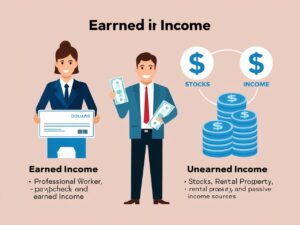Expense
When managing your finances or running a business, one of the most important concepts you’ll encounter is spending money. But what exactly is an expense? In simple terms, an expense refers to any price or payment made in exchange for goods, services, or to maintain daily activities.
Understanding expenses is essential to ensuring a healthy financial balance. It helps you keep track of where your money is going, identify areas where you can cut back, and ensure you’re living within your means or making informed business decisions.
Types of expenses
Expenses can be divided into two main categories:
1. Fixed expenses
These are regular, predictable expenses that don’t change much over time. You know the exact amount you’ll have to pay each month or year. Some examples include:
- Rent or housing payments
- Utilities (such as electricity, water, Internet)
- Mortgage payments
- Insurance payments
2. Variable expenses
These fluctuate depending on your spending or lifestyle. You can control or adjust these expenses more easily. Some examples are:
- Purchase invoices
- Transportation (gas, car maintenance)
- Entertainment (movies, eating out)
- Medical expenses

Why it’s important to know what your expenses are
Tracking expenses can provide many benefits:
- Budgeting: If you know your expenses, you can create an effective budget to ensure you don’t overspend.
- Saving and investing: By identifying unnecessary expenses, you can save money to invest in savings and thus increase your wealth over time.
- Debt management: By being aware of how much of your income goes to expenses, you will be able to better manage your debts and make plans to pay them off.
How to track expenses
Here are some practical steps to start managing your expenses:
- Keep records: Use a notebook, spreadsheet, or expense tracking app to track your spending.
- Break down your expenses: Break them down into categories (e.g., groceries, transportation, utilities) to see patterns.
- Regularly review: Review your spending monthly or quarterly to make sure you’re meeting your financial goals.

Conclusion
In personal finance, understanding your expenses is essential to maintaining financial stability. Whether you’re saving for the future, planning a big purchase, or making sure your budget is under control, tracking your expenses is key to financial success.
Start by organizing your expenses and reviewing them periodically to develop healthy financial habits. Small changes in how you manage your expenses can have big effects on achieving your financial goals.









